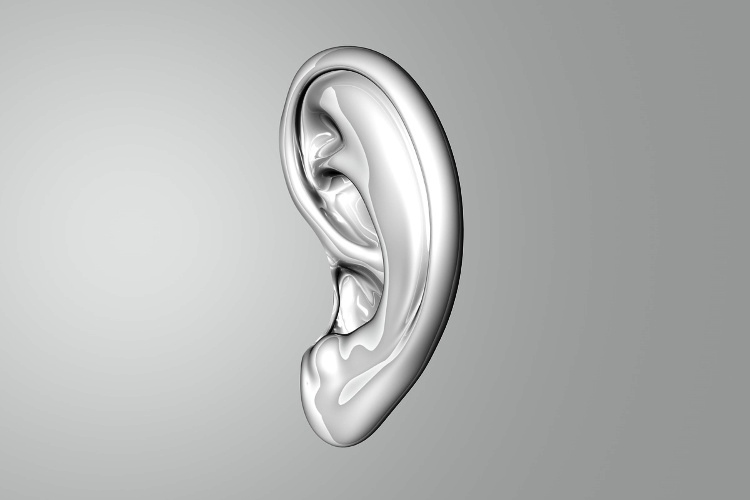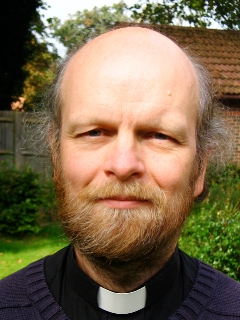|
The Church must listen, and build bridges
11th July 2019

Andrew Bryant is concerned at some of the political developments in recent years, and explains that the Church has a vital role to play in listening to the concerns and struggles of the people in our communities
We live in strange times. The world of politics grows daily more bizarre until we have now reached the point where almost nothing surprises or shocks us. It seems the only predictable thing is the unpredictable
Political commentators try their best to explain what has happened and what might happen but in the end they all conclude “but anything could happen”. “Uncharted waters” has become an over-used phrase
The familiar landmarks by which we guided our public life, the norms of political behaviour, have gone. For some this means we are entering into an exciting time of new possibilities. For others they are genuinely fearful of where all this will lead us
But the hardest truth to face is that we are reaping the results of a whirlwind that we ourselves have sown
For most of the final decades of the last century and into this century there have been certain political assumptions that were assumed to be held in common. It was believed that economic growth and development was for the good of the whole people, that a multicultural, multifaith society was enriching for all and that globalisation would bring benefit for everyone
But so often those vaunting this wonderful progress, were not those experiencing their consequences. The rich were getting richer, but the poor were also getting poorer. The ideal of wealth trickling down was a delusion. Those championing the richness of multiculturalism were all too often not those seeing their local streets change beyond recognition. The globalisation that promoted the project of European Union failed to take in to account that for many their local town hall felt remote and inaccessible yet alone those living in the gilded cage of London – a European parliament felt so remote it was beyond foreign
If such thoughts were ever acknowledged, it was assumed they were just the views of a minority and not what most (good) people thought. Minority perhaps, but a significant minority and others would argue that it was actually a growing majority for whom the assumed political values of the age were not working
These assumptions were stripped naked during the banking crisis. The richest in the West were bailed out by governments in the belief that this was for the good of us all. However, the resulting policy of austerity meant that the poorest once again suffered most. The growing deep dissatisfaction with the assumed political order finally found its voice in the EU referendum – they would be heard
Our politicians are still struggling to come to terms with what has happened. Some are still hoping that the clock can be turned back, and we can pretend none of this has happened. But for too long, too many people have felt unheard. And when people feel unheard, they are more likely to turn to the more extreme political leaders, those least like the ones who have been ignoring them. Rightly, those who have found a voice will not be silenced
There is nothing in and of itself wrong with growing the wealth of the nation, nor of developing a multicultural and multifaith society, nor of closer cooperation between the nations of Europe and of wider globalisation. But such developments need to take the whole nation with them and be clearly seen to benefit all not just some. People have learnt to be suspicious of proclaimed progress that in fact leaves them and others behind.
The Church has the potential to have a vital part in healing our broken and divided nations. Churches need to be rooted in their local communities, listening to the concerns and struggles of those living around them, and helping to give voice to those who feel they have no voice
Much as the Church may want to win friends and influence people it must remember that Christianity is always essentially biased to the poorest. Where churches become obsessed with their own survival or growth, where they turn inwards, then they are failing their communities. If the Church is to help stitch our nation back together it will be the depth of our service to our neighbourhoods that will be the true witness to God’s healing work
Each time I react to yet another stranger-than-fiction moment in our political life, I remind myself that we are in this place because for too long people like me listened too much to the voices that said what I wanted to hear. For too long I have ignored the voices from those not like me
Each new and strange political twist renews my commitment to reach out more to those who hold different views from me, whose perspective on life comes from a different place. In a divided society I need to learn to be a bridge-builder and let others help me see life differently
The image above is courtesy of Falko Knizia from Pixabay.com
This article also appeared on Network Norfolk
 The Revd Andrew Bryant is the Canon for Mission and Pastoral Care at Norwich Cathedral. He was previously Team Rector of Portishead, Bristol, in the Diocese of Bath and Wells, and has served in parishes in the Guildford and Lichfield Dioceses, as well as working for twelve years with Kaleidoscope Theatre, a charity promoting integration through theatre for young adults with Down’s Syndrome The Revd Andrew Bryant is the Canon for Mission and Pastoral Care at Norwich Cathedral. He was previously Team Rector of Portishead, Bristol, in the Diocese of Bath and Wells, and has served in parishes in the Guildford and Lichfield Dioceses, as well as working for twelve years with Kaleidoscope Theatre, a charity promoting integration through theatre for young adults with Down’s Syndrome
You can read Andrew's latest blog entry here and can follow him via his Twitter account @AndyBry3
The views carried here are those of the author, not of Network Yarmouth, and are intended to stimulate constructive and good-natured debate between website users
Click here to read our forum and comment posting guidelines
|
|
|
|